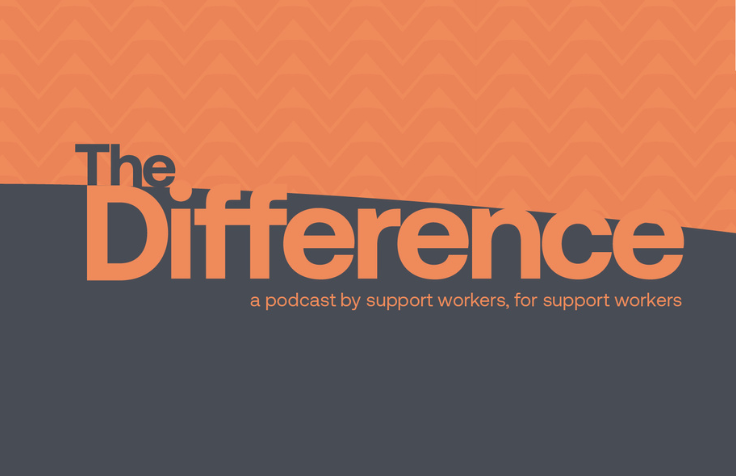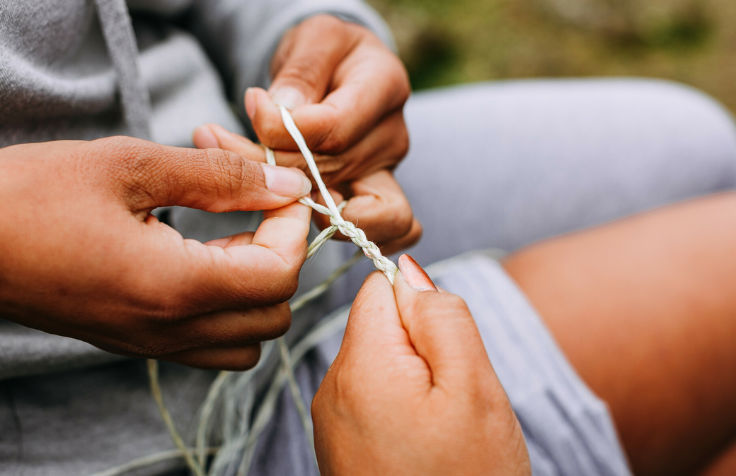Support work
Support work is incredibly diverse and makes up the largest proportion of the mental health and addiction workforce.
On this page you will find:
- information about the different valuable and skilled roles kaimahi do every day across Aotearoa
- learning resources and further training for support workers
- updates on new opportunities for kaimahi.
We recommend bookmarking this page on your device, so you can easily find it again and stay up to date.
What is support work?
In Aotearoa New Zealand, mental health and addiction support workers work with people to achieve their goals in many different environments, from non-government organisations, primary care, and within Te Whatu Ora Health New Zealand services. Support workers make up one-third of the workforce in health-funded mental health and addiction services. About two-thirds of these people work in non-government organisations (NGOs), with Te Whatu Ora Health New Zealand employing most of the rest.
Mental health and addiction support worker roles emerged over the last 30 years to fill a service delivery gap created by deinstitutionalisation.
Support work is based on the formation of trusting relationships with people before, during, and after receiving mental health or addiction treatment, and includes engaging with whānau. Support work plays an active part in people’s recovery by listening and providing advice and practical assistance in the spirit of “unconditional positive regard”, empathy, relationality, reciprocity, and mutuality.
While all support workers bring their experience of daily life into the role, some roles require specific lived experience. For example, peer support workers use their lived experience of mental health challenges or substance use, service use, and recovery in their work. Māori, Pasifika, and Asian support workers may have specific cultural roles, utilising their cultural knowledge and experience to support people and whānau from similar backgrounds. The strong relational focus of support work makes it a good fit for Māori and Pasifika peoples and likely contributes to their strong representation in this workforce.
Learning resources from Te Pou and Blueprint for Learning

Learning resources
Check out e-learnings, workshops, and other resources to support your mahi.

The Difference podcast
Check out The Difference, a podcast by support workers, for support workers.

Short films
A collection of short films, relevant to support work.
Important links
In this section you will find links to external websites that have important information or other learning resources for mental health and addiction support work.
-
Code of Health and Disability Services Consumers' rights
The Code of Health and Disability Services Consumers' Rights (the Code) establishes the rights of consumers, and the obligations and duties of providers to comply with the Code. It is a regulation under the Health and Disability Commissioner Act.
-
United Nations Convention on the Rights of Persons with Disabilities
Find information here on the United Nations Convention on the Rights of Persons with Disabilities (the Convention), which the Government of Aotearoa New Zealand has signed. The Rights in this convention apply to all tāngata whai ora.
-
Browse a series of online modules related to Privacy developed by the Privacy Commissioner here.
-
Browse upcoming training events run by Te Rau Matatau - a centre of excellence in Māori education and training that offers a range of Hauora (health and social care) programmes, within Te Rau Ora.
-
Browse free upcoming workshops and training events run by Le Va - Aotearoa’s Pasifika primary prevention organisation.
-
Browse resources and training events run by Whāraurau - Aotearoa's workforce development centre for the infant, child, adolescent and youth mental health and alcohol and other addictions sector.
-
KPI Programme Mental Health and Addiction Aotearoa New Zealand
The Key Performance Indicator (KPI) Programme provides helpful tools for people working in mental health and addiction services. These tools allow kaimahi to see how well their services are performing based on key measures that everyone has agreed are important. Information from these measures can be used to plan for things like how many staff are needed, decide where to spend money, and create a better experience for the people who use services.
-
Work-based learning for the health and wellbeing sectors.
-
Equally Well is a group of people and organisations with the common goal of achieving physical health equity for people who experience mental health and addiction issues. Anyone can sign up to be an Equally Well Champion in their workplace.
-
A Māori language glossary for use in the mental health, addiction and disability sectors.
